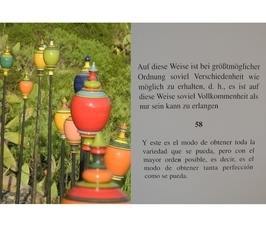Guest Workshop: Law and Diversity – Legal Categories and Identity
Guest Workshop
- Date: May 5, 2017
- Time: 02:30 PM - 05:30 PM (Local Time Germany)
- Organisation: Lorena Ossio Bustillos
- Location: MPIeR
- Room: Z 01

Guest Workshop
Law and Diversity: Legal Categories and Identity
Since February 2017 the MPIeR has been organizing a series of “guest workshops” as part of a new format. The idea is to address topics and issues dealt with in the research projects of the visiting researchers that have a particular connection to the Institute’s research fields. This time around the guest workshop is related to the research field Law and Diversity and is entitled: Legal Categories and Identity. The topic of the workshop will be introduced by Thomas Duve, and Lorena Ossio will chair and moderate the sessions. Each speaker has between 20 – 30 minutes to present their research, and afterwards we will have approx. 20 minutes for discussion.
Stefan Cristian Ionescu will talk about Economic Justice after Genocide: Restitution of Jewish Property in Post-Holocaust Bucharest, 1944-1950. His research project explores the reversal of the Romanianization (local equivalent of Nazi Aryanization) of Jewish property in Bucharest during the initial post-Holocaust years (1944–1950), including the responses of bureaucrats, gentile beneficiaries, as well as the Jewish community and individual Jews. Overall, restitution proved to be a difficult and problematic process involving Jewish survivors, individual profiteers, and political and social groups. Although the new regime formally repealed previous racial legislation rather rapidly, mainly due to foreign policy considerations, reversing its effect did not go smoothly. (Abstract (PDF))
Ekaterina Yahyaoui Krivenko will talk about Space, Law and Spatial Justice in Leibniz. In her presentation she addresses only one—albeit central—aspect of her research undertaken while at the Institute. She argues that the conceptualization of law is influenced by the conceptualization of space using the example of Leibniz. Additionally, it will look more specifically at the ability of law to accommodate diversity as being predetermined by the underlying conceptualization of space. In this regard, it is argued that Leibniz’s conceptualization of space allows him to conceptualize law in a way that places diversity as the foundation of its unity. In order to prove this thesis, Leibniz’s conceptualization of law and space are tested against the idea of spatial justice as articulated by Andreas Philippopoulos-Mihalopoulos. (Abstract (PDF))
Ana Díaz Serrano will present on the Political intermediaries in the Iberian Worlds: Indigenous Communities and Religious Orders in the Americas, 16th and 17th Centuries. Her research project is situated within the reflection on the functioning of the multi-territorial political entities in the Early Modern Period based on the understanding of the interactions between the imperial frameworks and the local contexts. She propounds a comparative study about the formulation and development of the ‘republics of Indians’ to analyse the incorporation of the indigenous communities into the political body of the Hispanic Monarchy. (Abstract (PDF))